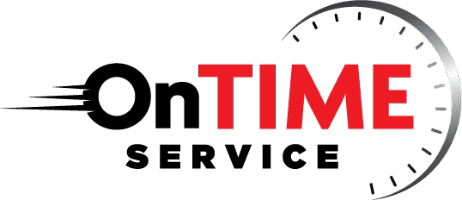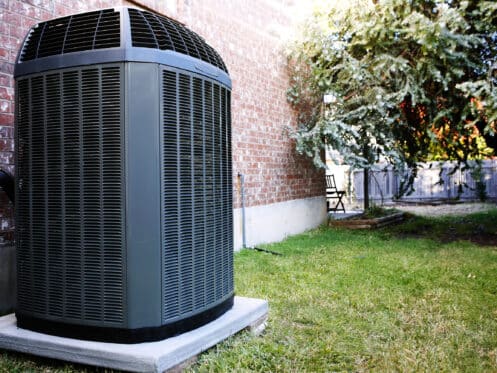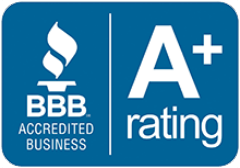Water collection is a natural and necessary part of how your air conditioner operates. However, if you observe water leakage from your AC unit, then there is a problem with one or several of your air conditioner’s components. At a minimum, water leaks can produce a huge mess in your household or place of business. However, unresolved leaks can also lead to extensive damage to your ceiling, walls, furniture and electrical wiring. As such, rectifying a water leakage is critical to the health and integrity of your AC unit and your premises.
Even though leaks can cause significant long-term problems, there’s no need to panic. Along with immediately shutting off your air conditioner, fixing the cause of your leak can be relatively simple with the aid of a professional HVAC service provider. Leaks in your air conditioner unit usually arise from five common causes, and identifying these issues can help you relay a clearer idea of what your problems are to your HVAC specialist.
1. Condensate Drain Line Clogs
Many important components go into your AC unit operation, and the condensate drain line is one of the most important parts in your system. As your AC unit removes moisture from your home or place of business, the condensate drain line is responsible for removing the excess water. This water can carry dust and debris from the air that settles in the condensate drain line over time. If the condensate drainpipe does not receive routine cleaning, then it will clog up and cause leaks in your air conditioner unit.
Fortunately, many modern air conditioners have an automatic kill-switch that shuts your unit off when a clog occurs. However, if your unit is an older model, then you have to switch it off manually. The first remedy to this problem is to schedule cleaning for your clogged condensate drainpipe. Even though you can potentially perform this process on your own, it requires careful attention that professionals are trained for. Moreover, your HVAC technician will also investigate if there are any additional factors that contributed to the drain clogs, ensuring that you avoid the issue in the future.
2. Frozen Evaporator Coils
Evaporator coils are the primary component responsible for cooling your indoor environment. They dehumidify the air during the cooling process, and evaporator coils require proper airflow and adequate refrigerant in order to perform correctly. Coils begin to freeze when there is inadequate refrigerant or airflow, and this issue causes excessive water to build up in the drain pan.
If you suspect you have frozen coils, you’ll require the aid of an HVAC technician in order to investigate and resolve the issue. A common indicator for frozen coils is insufficient cooling of indoor air, and if you detect this problem during a leak, then your evaporator coils are likely contributing to the problem.
3. Drain Pan Issues
The primary purpose of your air conditioner’s drain pan is to collect moisture from the dehumidification process, which is then removed through the connected condensate drain line. Over time, this process produces different levels of wear and tear on the drain pan. If this damage becomes significant, then water will eventually leak into other parts of your AC unit.
All drain pans have a limited life span between 15 and 20 years. Therefore, it’s important to be aware of how old your drain pan is so that you can have it properly replaced when the time arises. Preventive maintenance can help you stay on top of this task so that you know exactly when to replace this important component.
4. Poor Airflow and Build Up of Foreign Particles, Debris and Dust
Your AC’s air filters are primarily responsible for minimizing the amount of dirt, debris, allergens, mold and other foreign agents that circulate in your home or place of business. If your air filters are outdated, the concentration of foreign particles in your indoor environment increases. Moreover, the quality of airflow in your AC unit diminishes. As mentioned before, these problems contribute to other issues that lead to water leakage in your air conditioner.
Replacing your air filters three to four times a year is essential to maintaining adequate airflow and minimizing foreign agents in your indoor environments. Moreover, scheduling preventive maintenance can help ensure that your ducts don’t accumulate excessive amounts of dirt, debris and other particles.
5. Condensate Pump Problems
Condensate pumps connect to the condensate drain lines in order to finish off the water removal process. They collect the water in a reservoir, and the float switch activates when this reservoir is full so that it can release the water outside. Both components need to work properly to complete the process, and if either malfunctions, leakages can occur. Fixing your condensate pump requires the skills and experience of a professional HVAC technician.
Professional Help for Water Leaks
Water leakage in your air conditioner unit can be extremely inconvenient, but resolving it quickly can ensure that your system remains in good condition. Many of these root causes require professional assistance in order to replace damaged components and prevent the problem from happening in the future.
For over 30 years, our team of expert HVAC technicians at OnTIME Service has helped families and businesses in Henderson, KY and the Tri-State area to keep their air conditioners in optimal condition. Our services can ensure that your air conditioner receives the repairs it needs after a water leakage incident, and our HVAC maintenance plans can help you avoid potential water leaks in the future. If you need help with a water leakage problem or want to ensure that it doesn’t happen in the first place, contact OnTIME Service today to see how we can help. We also offer heating and indoor air quality services.









